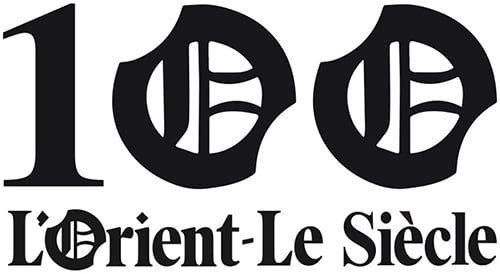Taiwan Lung Meng's stone paper is an environmentally friendly alternative to traditional wood pulp paper. Here the paper, which consists of a mixture of 80 percent calcium carbonate and 20 percent non-toxic resin, is being prepared for eventual distribution. Photo Taiwan Lung Meng
The famous sculptor Auguste Rodin once said, "I choose a block of marble and chop off whatever I don't need." Had he lived until current times, he would probably be amazed to discover how those leftover marble remains can be transformed to craft new possibilities. The approach used by Taiwan Lung Meng Technology Company (TLM) is symbolic of using no frills materials in an unconventional way to create cutting edge products that we use daily, such as paper.
TLM, a company based in the southern city of Tainan that employs 300, has pioneered a process that takes marble waste and converts it into high quality paper. This stone paper that uses a mixture of 80 percent calcium carbonate and 20 percent non-toxic resin is not only recyclable, but its manufacturing process is also eco-friendly in that the paper does not come from the trees that our Earth desperately needs.
The making of stone paper involves the process of grinding leftover mined marble into a fine powder, adding calcium carbonate and a resin mixture and bringing it to boil at around 160 degrees centigrade. The composition does not require acid, alkalis or bleaching, nor does it cause water pollution. And the only water used is for cooling the stone paper pallets. For its disposal the stone paper is put in an incinerator where it will not produce toxic fumes and where the calcium carbonate that remains will not damage incinerator walls.
The result is a lightweight, soft to the touch writing medium that is hard to tear, suitable for storage and can even be used for note taking by divers under water.
In contrast, one ton of wood pulp paper requires the felling of 20 trees, the usage of close to 7,500 gallons of water and creates nearly 1,000 kg of carbon emissions.
"Non-wood consuming" process
TLM's "non-wood consuming" process, which it has developed at a cost of US$50 million, has won it many accolades and certifications, including being the first to be awarded "Cradle to Cradle" (C2C) certification in Taiwan. In contrast to cradle to grave (C2G) materials which cannot be recycled and reused, C2C standards certify that a product is sustainable in five categories, including: material safety, recovery/recycling, energy usage, water usage and social responsibility. The company has also partnered with international entrepreneur and author Gunter Pauli, whose vision for responding to societal economic needs through locally available resources was made known worldwide in the book "The Blue Economy."
Aside from the environmental advantages, stone paper has practical advantages over its traditional wood paper counterparts. For one, stone based paper is flame, water and bug resistant, making it ideal for archives. Due to the paper's durability to the elements, it is also an ideal material for posters, manuals and trail maps. The U.S. White House has used the paper with its signage in gift bags, a practice that has also been adopted by Mercedes Benz and Ferrari.
It is also lighter, which translates into reduced burdens for textbook toting schoolchildren. "We want kids and students to carry stone paper printed textbooks to school as it is light weight and eco-friendly. Most importantly, it is extra durable and water resistant," said Alan Sun, a company representative.
Beyond paper, TLM has ventured into stone based T-Shirt Bags (reusable grocery sacks). Unlike traditional grocery sacks that take decades to decompose, TLM's variant takes half a year to a year under direct UV exposure.
TLM's resource recovery of inorganic waste and its benefits towards improving the environment, puts yet another quality environmentally responsible product on the store shelf. Already, the company's technology has been patented in over 40 countries and is being sold in Europe (the Netherlands, Germany and France) as well as in Canada and Australia.
For more information:

commentaires (0)
Commenter